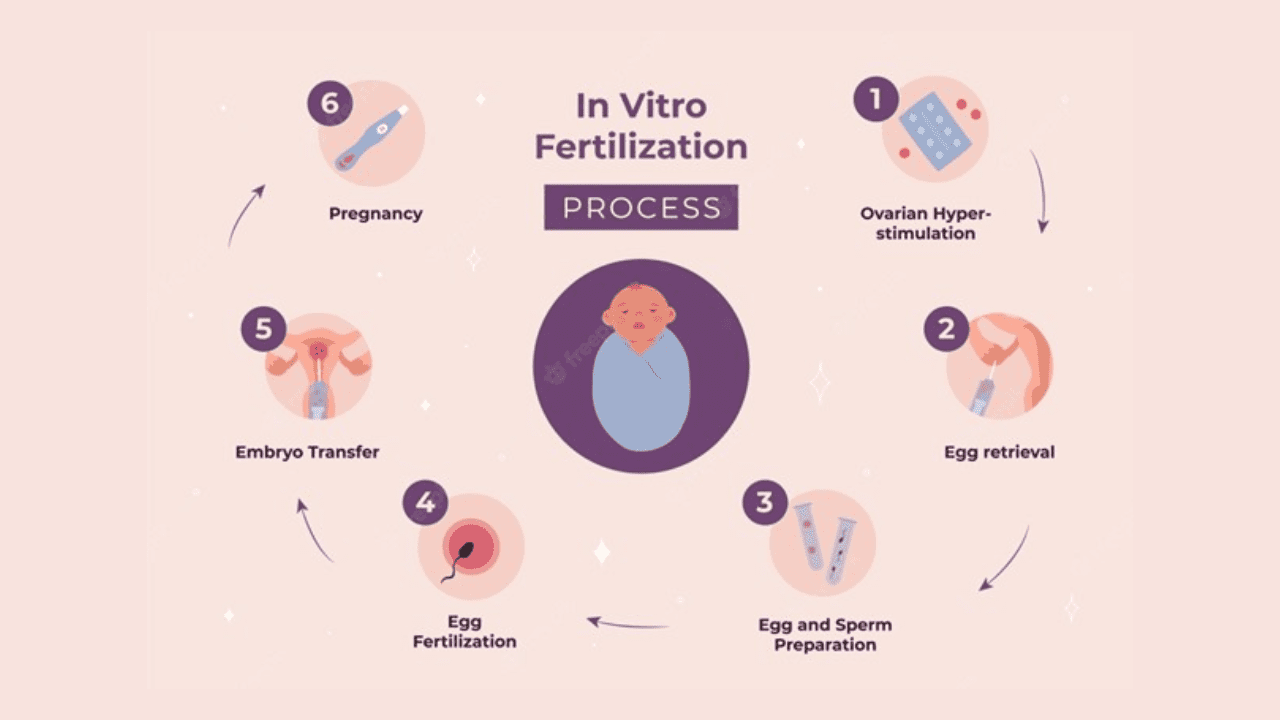IVF : 6 Things You Should Know Before Starting The IVF Treatment Process

In vitro fertilization (IVF) is a process by which egg and sperm are brought together in a laboratory setting to create embryos. The embryos can then be transferred back into the woman’s uterus so that they can continue to develop and eventually result in the birth of a child. If you have struggled with infertility for some time and have explored all other options, it might seem like the next step is to look into IVF. But this is not an easy process, especially if it’s your first time going through it. Because of that, the best IVF center in hyderabad says that you need to be fully informed before you make the decision to go forward with this treatment plan. This article will cover some of the most important things you should know before starting the IVF treatment process.
What Is The Fertilization Process?
IVF centre near me believes that the fertilization process is comprised of two parts: First, the lab will retrieve your eggs, during which they will be prepared so that they can be fertilized. Then the lab will combine your partner’s sperm with your eggs. If successful, one or more fertilized eggs will be placed in a special culture to grow into embryos. Embryos are placed into the woman’s uterus so that they can continue to develop and hopefully result in a pregnancy.
What Are The Costs Of IVF?
Unfortunately, the costs of IVF treatment process vary based on where you go. The average cost of fertility treatments is $12,295, and IVF is the most expensive of those treatments. The average cost of one IVF cycle is $9,934 and the average cost of freezing embryos is $1,670. The cost of IVF is a big deal because it can affect your ability to become a parent. You may have a hard time finding health insurance that will cover your IVF treatment. Because insurance companies consider IVF as experimental and cosmetic, they often won’t cover it. As a result, the costs of IVF may fall to you.
How Is IVF Performed?
IVF success rate is the process of fertilization (fertilization is a process by which an egg and sperm combine to form an embryo) outside of the body. There are two main ways to have IVF: natural IVF, which involves using a woman’s eggs and a man’s sperm together in a lab, and assisted IVF, which means that a doctor helps the process by giving the couple fertility drugs.
There are many different ways of doing IVF. One way is called test-tube baby: In this procedure, doctors take a sample from the woman’s ovaries and put it in a petri dish with a man’s sperm. Once there are enough eggs and sperm in the dish, they will start to fuse together. This takes place in the lab under very controlled conditions. The lab-grown embryos are then placed back into the woman’s uterus, where they can implant and grow into babies. Another way is called traditional IVF: In this procedure, a woman has her eggs removed from her ovaries, fertilized with a man’s sperm under very controlled conditions, and placed back into her uterus.
The success rate of IVF depends on many factors including the age of both the woman and man undergoing IVF; how long each has been trying to get pregnant; how well the eggs and the sperm
The procedure itself is broken down into several steps. When you start the IVF process, your healthcare provider will start you on fertility medications. This is to stimulate the production of the eggs, and they will be harvested during the next visit. After the retrieval, the lab fertilizes the eggs and creates embryos. The embryos are then transferred into the woman’s uterus so that they can continue to develop and hopefully result in a pregnancy.
What Are The Success Rates Of IVF?
Infertility center in Hyderabad say that success rates vary based on a number of factors, including your age, your partner’s age, the cause of infertility, etc. The rate also varies depending on the type of IVF being done and the clinic where it’s being done. The CDC reported that the success rate for IVF was about 41.8%. This means that about 42 out of every 100 women who had the IVF treatment became pregnant. Overall, the success rates of IVF are not very high. This is why many couples choose to take a different approach.
Who Is A Good Candidate For IVF?
The best IVF center in hyderabad says that IVF is appropriate for patients who have unexplained infertility or who have not been able to conceive after one year of trying. When you’re making the decision to use IVF, you should also think about who is a good candidate for the process. To be a good candidate, you should be in good health and have no issues that would prevent you from conceiving a child. You should also be committed to the process because IVF is not an easy road to take. It’s a long journey that can be filled with ups and downs. It can be a difficult and emotional process for everyone involved. And it can take a long time before you see the results.
What Are The Side Effects OF Starting The IVF Process?
There are some side effects that you may experience when you start the IVF process. For example, you might feel isolated because you can’t share your news with anyone. You may also feel anxious because you are trying to do something that can be difficult and stressful. You may also feel depressed because infertility can be a difficult problem to deal with. And you may also feel stressed out because you have to keep track of a lot of appointments and medication schedules.
How Can You Prepare Yourself Mentally For The Process?
Before you start the IVF process, you need to make sure that you’re prepared mentally for the journey ahead. You have to stay positive and hopeful that everything will work out for you. But it’s not easy to do this when you’re facing infertility. But staying positive is incredibly important because it can help you get through the process. If you’re prepared mentally, then you are more likely to succeed.
Conclusion
The fertilization process is comprised of two parts: First, the lab will retrieve your eggs, during which they will be prepared so that they can be fertilized. Then the lab will combine your partner’s sperm with your eggs. If successful, one or more fertilized eggs will be placed in a special culture to grow into embryos. Embryos are placed into the woman’s uterus so that they can continue to develop and hopefully result in a pregnancy. The process of IVF can be challenging, but it can be helpful for couples that are experiencing infertility. It can be useful for couples who are struggling with infertility because it can help them conceive a child.




